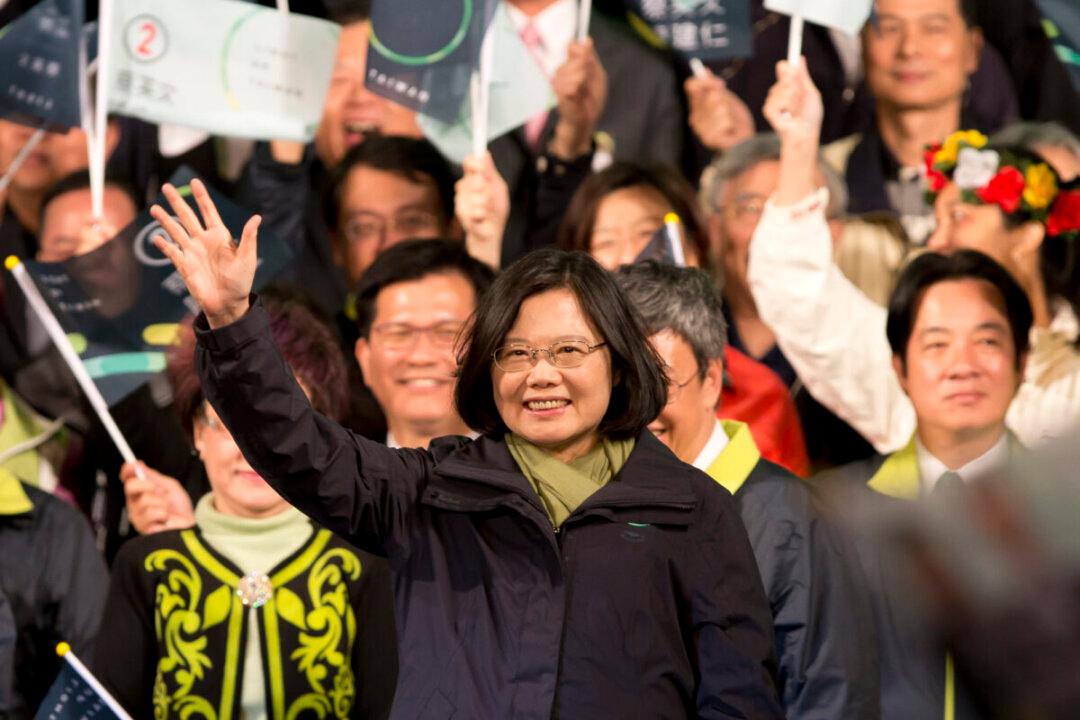Greeted by the fizz of fireworks, flags, honking horns, and a jubilant throng of tens of thousands of citizens, president-elect Tsai Ying-wen (蔡英文) took to the stage last Saturday, in front of her national campaign headquarters in Taipei, to say a few words after her spectacular victory was confirmed.
“I’ve said that I would sacrifice my life to make you happy and now I’ve kept my promise,” Tsai told the excited crowd, her running mate Chen Chien-jen, campaign team leaders, local government heads, and other Democratic Progressive Party (DPP) heavy hitters standing behind her. “If you still have tears in your eyes,” she continued, “please wipe them. Let’s welcome a new age of Taiwan with joy.”
Thanking the crowd for their support of her and the party, Tsai went on to say the usual stuff about the need for openness, responsibility, and realism, and the imperative of handling relations with China through continuous communication, without reckless provocations. Then came the surprise first instruction to her DPP colleagues and supporters: “Be humble,” she said, “be humble and be more humble.”
It took a woman who has scaled the highest plateau of politics—the first woman ever to be elected as president in the East Asia region—to say the unsayable, to utter the word normally forbidden in high-level politics: humility (qiānbēi, 謙卑). It was a remarkable instruction, and a remarkable beginning, yet to my knowledge no journalist or political commentator has since commented on Tsai’s use of a precious word that should enjoy a special place in democratic politics.
Why is this word so special? Never to be confused with docile meekness or submission, humility is the cardinal democratic virtue, the antidote of arrogant pride: it is the quality of being aware of one’s own and others’ limits. People who are humble try to live without illusions. They dislike vanity and dishonesty; nonsense on stilts and lies sitting on thrones is not their thing. Humble human beings feel themselves to be dwellers on earth (the word humility derives from humus). They know they do not know everything; they are well aware they are not God, or a minor deity.
Humility is the opposite of haughty hunger for power over others, which is why humility baulks at humiliation. In a world of arrogance tinged with violence, humility emboldens. Unyielding, it gives individuals inner strength to act upon the world. It dislikes humbug and hubris. It anticipates a more equal and tolerant—and less violent—world. It cries out for democratic institutions that put an end to rule, if by that is meant bossing others who have few or no means of redress. Under democratic conditions, ideally, nobody rules in the sense that those who make and take decisions are subject constantly to the principle of public chastening. They are blocked from bullying others, or governing them through bribes, lies, threats, fear, or violence.




